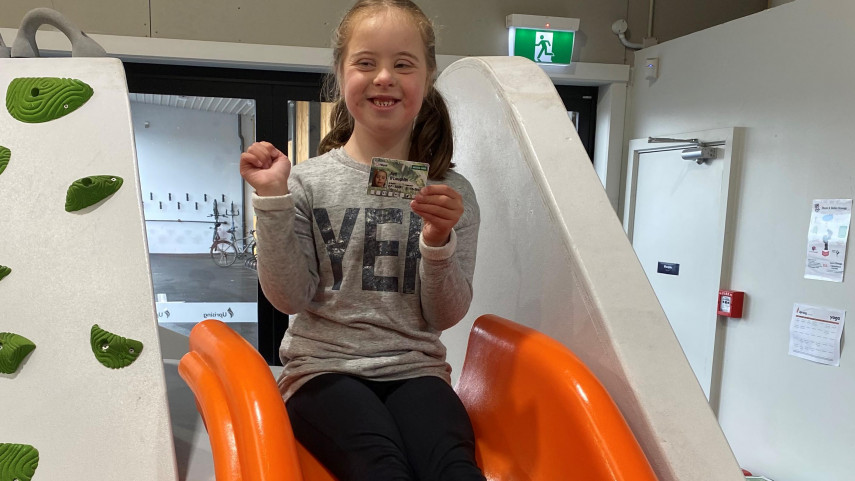
New access card to support people with disabilities

Share this story
Christchurch City Council is partnering with the Hāpai Foundation to help eliminate the barriers faced by people with disabilities.
It is supporting the launch of the Hāpai Access Card – a new card that people can use to discreetly inform businesses about their disabilities and the extra support they may need.
Businesses who register to accept the card will get training from the Hāpai Foundation on how to improve the customer experience for people with disabilities.
“The Hāpai Access Card is unlike anything that currently exists in our country to support people with disabilities,’’ says Hāpai Foundation Chairman Bob Shearing.
“What this card will provide for Kiwis who struggle with barriers is opportunity, inclusion and access in a way that respects them as valued members of our community.’’
Christchurch City Council has long supported people with disabilities through its KiwiAble Card. Holders of the KiwiAble Card will now be transitioned over to the Hāpai Access Card.
Christchurch City Councillor Aaron Keown, who chairs the Council’s Accessibility Regulatory Working Group, says there was unanimous support from working group’s members for making the switch to the Hāpai Access Card.
“The KiwiAble card has helped break down barriers to participation by providing people with disabilities discounted access to sport, recreation and leisure facilities, but it can only be used in the Christchurch district.
“The Hāpai Access Card can be used nationwide and has benefits for both card-users and the businesses who sign up to be part of the programme. It is a positive step towards eliminating the barriers that prevent some people with disabilities from feeling valued and welcomed,’’ Councillor Keown says.
Kerri Bonner, one of the first Hāpai Access Card holders, says it is a brilliant initiative that brings together the disabled community and the business community.
“The card lets the disabled community know that Hāpai registered businesses are open to having conversations about how they can become more inclusive and welcoming of disabled people,’’ Ms Bonner says.
“It’s not about businesses getting it ‘right’ every time, it’s about creating opportunities for conversations about accessibility and inclusion.
“As for the benefit to businesses, the more open they are to having these conversations and doing things a little differently, the more the disabled community are going to spend their money with them. It’s a win, win,’’ Ms Bonner says.
*Pictured above, eight-year-old Ava O'Laughlin is the first New Zealand child to hold a Hāpai Access Card.
